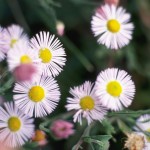While traveling last month and taking various forms of public transportation which required me to share a seat with other travelers, I became curious about unconscious habits. Do we all have unconscious habits that occur when we are otherwise focused; for instance, while reading or watching a movie? And because we are so drawn into the entertainment through our eyes, and our hands being free; that we do some unconscious movement with our hand. I experienced on these trips the following unconscious habits as nail biting, knuckle cracking or popping and nose picking, all being done very unconsciously as the person was reading and/or watching something on their ipad or iPhone. It was very distracting to me, that in one instance I asked to be moved to another seat. So I thought, what habits do I have? We really can’t see ourselves, and the habit isn’t in our awareness. So I decided to watch a movie on my ipad so I could really become aware of what I do, it was so hard since I was so drawn into the story. I had to divide my attention between two things, and probably more if I heard a noise or my phone rang. WOW, could I do it? This is what FM Alexander explored 103 years ago, when he lost his voice when performing. When he watched in the mirror that he tightened his neck, shoulders and ribs, he knew that tension made his voice scratchy and hoarse. However he wasn’t aware at all of the bracing and tightening he was doing “unconsciously”. He realized that we do have a choice on how we use our attention. What is our body doing, what are we thinking, what is around us, and then to practice being attentive to your self and your surroundings. This new way of being allows you to change the unconscious habits that may be affecting your voice, breathing, joint pain. My habit? I am still exploring, and I know there is one, I am finding that what I think I am doing isn’t necessarily what I AM DOING! Better pull out a mirror, and try Mr. Alexander’s way of seeing himself and find out what i can’t sense in myself. To be continued….
Category: General info
 I was just remembering a little practice that is so helpful when I am sitting in front of a computer or driving for an extended time. My eyes dry out and I start squinting and rubbing them, creating redness and perhaps wrinkles.
I was just remembering a little practice that is so helpful when I am sitting in front of a computer or driving for an extended time. My eyes dry out and I start squinting and rubbing them, creating redness and perhaps wrinkles.
The 20-20-20 practice is to look at something 20 feet away for 20 seconds every 20 minutes. It is amazing (BTW, if driving, wait until you stop!). I feel like if you can look out in nature it’s even more rewarding, the expansiveness creates an expanse in my framework, my joints open, my breath becomes slow and meditative.
Try it and let me know what you think. And please pass this interesting little tidbit on to others you may think could benefit.
AND…
For other ways to keep from aging and bring some calmness in your life…try our Fall Group Class: “Finding Unexpected Ease in How We Do Anything” Thursdays, 10-12 pm – Starting September 11. For more information: http://karenloving.com/group-classes-moving-medicine/
Where do I find “patience”?
The challenge of patience; I’ve been exploring the places where I notice patience in my life. Patience, to me, means a time to discover where I have choices. A pause in my daily activities where I can be quiet and listen to what would be the most healthy and loving choice I could make for myself and for others. Being patient with myself first, and pausing to realize I have a choice in all that I do, and in every word I say. This quiet patient listening to all that is around me and going inside to reflect on how to move forward with kindness and service. I notice when I’m in Montana where the energy is very calm; people are not rushed. There is a very strong connection to the natural world in a very accepting way. This responsibility to the natural world teaches us to pause and be patient. To be patient as the seasons change, as the leaves and flowers unfold. In the natural world, there is only “patience”.
This inquiry into my world of “patience” reminds me of the work and discovery that F. M. Alexander embarked on 103 + years ago. He quietly watched the way he moved his body to see what could help him alleviate his problem of being hoarse when he spoke. He realized that a more natural way of moving, breathing, speaking could create more ease in his whole musculoskeletal system, and that he might be doing more or creating more effort than was natural. He didn’t intend to create this amazing method of self-care, now known as The Alexander Technique. He was discovering that when he became present, patient and quiet enough with himself; he became more aware of his very fine movements of breathing, standing, seeing, bending, and he discovered that when he paused and was patient with how he made these choices there was ease in his body and improvement in his voice and speaking. My wish is that we can all find periods of quiet presence and patience in our days that sometimes feel more rushed than is healthy; however, knowing we have a choice gives us hope of remembering our natural movement, our connection to the natural world where we can always experience “patience”. Come explore the Alexander Technique principles that can take you deeper into your own sense of awareness and conscious choice.
